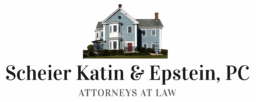District projects end-of-year surplus of $4.4M, teachers ask to restore cut positions
As part of the third quarter financial report, Director of Finance and Operation Sheri Matthews announced at the May 8 School Committee business meeting that the district is projecting a significant end-of-year revenue surplus of approximately $4.4M.
The surplus includes a $2.75M IRS tax rebate for construction of a geothermal well system at the new Boardwalk Campus, a $185K rebate from energy provider NSTAR for meeting and exceeding 2024 energy performance targets at the Boardwalk Campus, $395K from investment income due to market overperformance, and $620K returned to the district by the Acton Health Insurance Trust from savings on runout claims.
Matthews told the School Committee that it’s looking certain that the state legislature will increase minimum aid under the state’s chapter 70 program to $150 per pupil. Should that increase materialize when the state budget is finalized and signed by the Governor (typically in July), the district stands to receive approximately $367K in additional aid. The district is also closely watching to see if the legislature will increase reimbursement rates to offset costs related to regional school transportation and transporting students to out-of-district, specialized educational programs.
Chair Adam Klein commented on May 8 that “we are seeing significant additional revenue this year not because we underspent and not because we didn’t plan well but because of great advocacy over years with regard to the Boardwalk Campus and, this year, with our state legislators to help them understand the budgetary challenges we are facing. Most of that money is one-time revenue and will not solve our ongoing budget challenges in future years.”
Discussion focused on using a portion of turnbacks to replenish depleted reserve funds designated for urgent capital projects, out-of-district tuition and transportation costs, and the school district’s general reserve account known as the Excess and Deficiency Fund, which currently has a balance well below the School Committee’s policy guidelines.
AB educators, including the president of the Acton-Boxborough Education Association, Mike Balulescu, pleaded with the School Committee during public comment on May 22 to use a portion of the expected increase in state revenue to restore positions eliminated in the 2025-26 budget.
A formal recommendation on use of surplus revenue is scheduled for June 5. Superintendent of Schools Peter Light told the School Committee on May 22 that he expects “to propose a budget amendment that uses a portion of the increase in chapter 70 aid to reduce the assessments to the Towns of Acton and Boxborough and restore a number of positions in areas of critical need.”
School improvement plan presentations offer glimpse into how AB schools are improving outcomes and school culture
Each year, school principals in Massachusetts are required by state law to develop an annual school improvement plan in consultation with their school council and present the plan to the superintendent for review and approval. In Acton-Boxborough, principals are invited to School Committee meetings throughout the spring to present their look-back on the year.
Below is a selection of highlights from the 2024-25 school improvement plans that are tied to the district’s goals and focus on school-based initiatives to improve student achievement, attendance, school culture, and social and emotional skills linked to academic and personal success.
R.J. Grey Jr. High School: Principal Jim Marcotte presented at the April 17 School Committee meeting on an experimental workshop aimed at accelerating learning for students at risk of falling behind in math and English. Teachers worked with small groups of students during a directed study period over the course of two six-week cycles. One hundred seventy-two students participated. Marcotte told the School Committee that although students reported feeling more confident in their classes, the workshop was paused pending alignment of the model with contingencies in the teachers’ contract around prep time. “What we learned is to be stubborn with the vision and flexible with the plan,” Marcotte said. “We’re still using data and tracking growth, just not with this model.” Chair Klein added, “This is not just a teacher contract issue but speaks to our struggle to fully fund our schools so that we can provide services to all students who need them.”
Marcotte also shared survey data that indicate students are more frequently seeing adults and peers interrupting incidents of hate and/or bias at school. “Last year, staff were trained on a strategic approach to interrupting hate and bias, and students were trained this year. We are growing in the right direction and will continue to measure progress,” Marcotte said.
An area of ongoing concern is chronic absenteeism. Marcotte reported a slight uptick this year in the number of junior high school students who are chronically absent or on track for becoming chronically absent, and he identified barriers that are negatively impacting regular school attendance and protective factors that contribute to good attendance rates. “We are looking closely at data and trying to study what’s going on and how we can be supportive.”
ABRHS: Principal Joanie Dean, who presented on May 8, highlighted many community-building events this year at the high school that have positively impacted school culture. Dean shared a quote submitted by a graduating student that “it feels that the school has made great strides toward prioritizing community as well as diversity.”
Dean reported that a group of staff from the high school visited 13 schools this year to research practices shown to improve student engagement and learning outcomes. As a result, the high school is considering embedding a “flex block” into the schedule to extend time on learning that is targeted and responsive to student need. Dean told the School Committee that the high school also instituted a new practice this year of periodically opening grade books for short periods of time so that students can see how they are progressing grade-wise in their classes. “We have seen a shift in ownership. Students are trying harder when they are aware of their mid-term grades,” Dean said.
Dean reported a 46 percent increase over the past two years in the number of students taking advanced placement exams with the pass rate remaining steady at 94 percent. The high school has also seen a 42 percent decrease in the number of class periods students are cutting during the school day, which Dean attributes to implementation of a more robust attendance tracking and accountability system. A similar system is in place to reduce chronic absenteeism.
During a brief update on course re-leveling, Dean shared that over the last several years the high school has compressed the number of course levels in the science, social studies, English, world language, and math departments, eliminating 16 courses overall across all four grade levels. “Students have reported that they enjoy having access to classes with a wider range of students, and teachers are happy with the successes and opportunities that students have been afforded. It’s a substantial amount of work that the high school has done. We are happy to see that our quarter one and two grades this year have remained consistent.”
School Committee member Yanxin Schmidt shared feedback she has received from concerned parents about removal of the accelerated-enriched (AE) level and asked Dean, “Do we have a plan to support these students?” Dean replied, “Once you introduce another level, you start segregating the student population. We recognize the need for supporting, challenging, and stretching students. One of our goals is to assist staff in developing tools to support students in the most heterogeneously grouped classrooms. We think it’s going to take another 3-5 years to fully work out what we need to do to realize our vision.”
Re-leveling high school classes is tied to the District’s goal of increasing opportunities for students to engage in advanced level classes and providing a broader range of learning and social environments.
Elementary Schools: The elementary school principals jointly presented their school improvement plans to the School Committee on May 22.
Principal Larry Volpe reported on a culturally responsive family engagement initiative at the C.T. Douglas School that focuses on students and families who move in mid-year. “It’s a lot harder to onboard families in January than it is in August,” Volpe said. “We’ve now operationalized a welcoming process to ensure families are meaningfully supported and can navigate Parent Square [a communication app used in AB Schools]. Families were sent a survey to provide feedback on how we can improve the onboarding process to inform goals for next year.”
Principal Tricia O’Reilly described an innovative, embedded professional learning program at the Luther Conant School, where grade level teacher teams engaged weekly with building-based specialists with expertise in literacy, math, psychology, or English language learning instruction to broaden, deepen, and refine their knowledge and understanding of how students are effectively supported in a multi-tiered system of supports.
Paul P. Gates School Principal Allison Warren reported on an upcoming end-of-year art show that serves as the culmination of grass roots work this year revisioning the school community’s values of kindness, respect and inclusivity. “Every staff member and student contributed to an art panel that will hang in the school and serve as a visual representation of our values,” Warren said.
The district’s new bullying prevention program and social and emotional learning curriculum, Second Step, received high praise during the presentations. Principal Tricia O’Reilly noted that “after a year of foundational work we are finding that it really has enriched conversations in classrooms, improved relationships between students, and provided them with the language to self-reflect and see others’ perspectives.” Principal Larry Wolpe added, “At the Douglas School, you can hear students using language from the program to navigate social interactions. We are seeing growth within discrete areas of social and emotional competencies.”
Principal Christina Gavin reported that the Merriam School has centered its goals this year on inclusion and belonging, and has taken steps to build capacity to interrupt incidents of hate and bias at the school. Gavin told the School Committee that a new volunteer committee of parents and staff met regularly this year to identify ways to elevate student voices and improve school culture. “The majority of students report having a positive experience at Merriam, but we are noting there is a small group of students who are not,” said Gavin. “We have formed this new group to extend efforts to deepen our awareness and understanding. We’ve surveyed students and defined the problem. We have invited parents, students and staff to topic-specific discussions related to strengthening our sense of community. We have engaged all staff in professional learning so that we are well equipped to respond to these events when they happen, and we are seeing success with Second Step, Responsive Classroom, and restorative practices.”
McCarthy-Town Principal Christy Nealon related that McCarthy-Towne staff are benefiting from the district’s publication of a set of “can do” statements that identify developmental milestones for social and emotional and academic competencies by grade level. Nealon reported that this tool has been an important complement to McCarthy-Towne’s behavior decision matrix, as it helps locate skills on a developmental trajectory to inform interventions and helps staff identify students who may be struggling with competencies and lagging behind their peers.
Principal Mike Votto reported a strong student response at the Blanchard Memorial School to a roll-out of three modules of a curriculum for English language learners in grades 1-6 that engages students with complex nonfiction texts for reading and writing. The inquiry-based program builds literacy skills, develops students’ problem-solving abilities, emphasizes themes such as perseverance and collaboration, and makes real world connections. “I’ve had more parents comment this year that their child is coming home talking about what they are learning in school,” Votto said. We have also expanded our utilization of data to drive decision-making around providing more intensive supports to students in math and reading.
Other Committee-related updates
Boxborough Town Meeting approved their portion of the School District’s budget on May 13.
The School Committee approved a new financial assistance policy on May 22 which establishes income eligibility guidelines related to certain fee-based programs listed in the policy.
A slate of nineteen members was appointed to serve on the Strategic Planning and Reorganization Steering Committee, which will work with the District Management Group to engage the community in the process of identifying cost saving efficiency and reorganization scenarios. The District has set up a web page for community members to access information and monitor progress on the initiative.
Finally, the Committee held its annual election of officers at their May 22 business meeting. Acton Member Tori Campbell will serve as the chair for the 2025-26 school year beginning August 1, 2025. Acton Member Leela Ramachandran and Boxborough Member Adam Klein were voted in as vice chairs. Julie LaLumiere was appointed secretary for the School Committee, and Stephanie Krantz was reappointed district treasurer.
Diane Baum is the School Committee beat reporter for the Acton Exchange. She served on the Acton-Boxborough Regional School Committee from 2015 to 2021.













